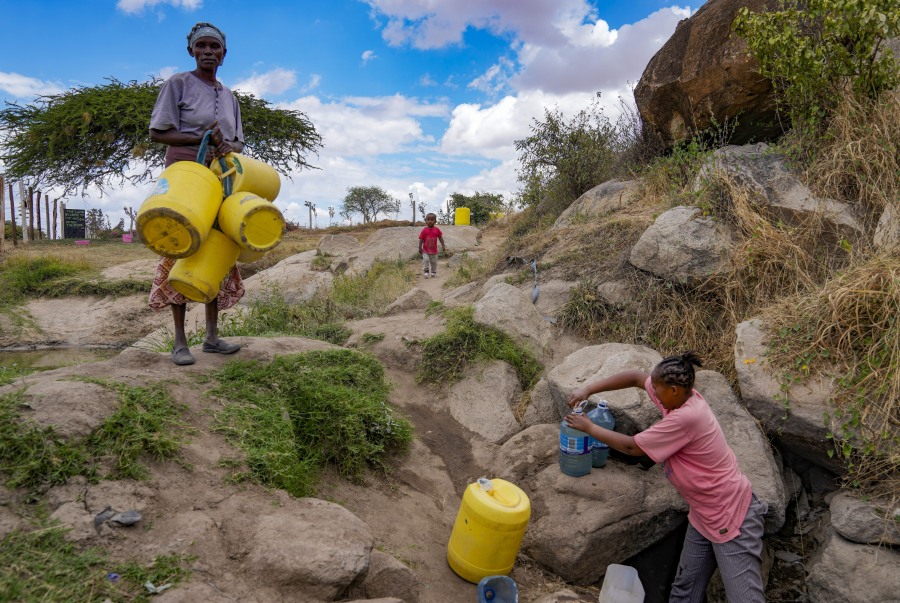Punishing heat that hovered and hung on much longer than usual. Flash floods that washed away large swaths of land and life. And wildfires that burned much of the year, leaving a wake of smoke and charred earth.
The toll of disasters propelled by climate change in 2023 can be tallied with numbers — thousands of people dead, millions of others who lost jobs, homes and hope, and tens of billions of dollars sheared off economies.
But numbers can’t reflect the way climate change is experienced — the intensity, the insecurity and the inequality that people on Earth are living. Associated Press photographers around the world captured moments in 2023 that collectively tell that story, one of a changing world.
Intensity
In so many skies, there was smoke, seen in the distance and breathed up close. From Canada to Greece to Hawaii, wildfires raged, consuming land while the flames fanned a thick haze that traveled around the globe. So intense were the wildfires in Canada that they released several times more air pollution than the entire country usually does in a year, working against world efforts to reduce greenhouse emissions, which fuel climate change.
There was also intense heat and desperate efforts to find relief — during a year on track to be the warmest in recorded history. In China, two little girls held small fans in front of their faces, while in Romania a father and daughter delighted in the mist of a public fountain. In Switzerland, a man walked toward the Rhone Glacier, which is melting like so many other glaciers worldwide.
And there was rain, that caused destruction. After Storm Daniel unleashed a torrent from the sky, floods in Libya killed more than 11,000 people, with several thousand others missing. In India, a woman wailed after a landslide washed away houses, leaving family members trapped under rubble. In the U.S., two people waded through water in a laundromat after major flooding.
Insecurity
In so many places, floods, powerful storms and heat waves wiped out supplies of food. That led to hunger, forced people to migrate in search of sustenance and increased pressure on governments to respond.
In India, a woman cooked in her flooded home while her husband prayed, a scene of both devastation and resilience. In neighboring Pakistan, people waited in the rain to receive food distributed by volunteers outside a camp for internally displaced migrants — as Cyclone Biparjoy ominously approached. In Zimbabwe, a woman worked a field of millet, a cereal that is more resistant than other crops to changes in temperature.
In Argentina, men fished amid many floating carcasses of fish killed by drought and multiple heat waves that jacked up river temperatures and dried out landscapes across areas of South America. A hemisphere away, seemingly endless heat imperiled sheep herding, central to the culture of Navajo in the U.S. Farther west, in Alaska, men worked fishing boats with the knowledge that this year’s catch could be much less than last year’s, as climate change is upending their livelihood.
Inequality
In every place that climate change made its mark, inequality was made worse.
Desperation could be seen in the eyes of Pakistani children, standing in the mud and looking through a window while it rained at a camp set up for internally displaced people. It gripped people in Kenya who must go deeper and deeper to access groundwater, as periodic drought has plagued East Africa.
On the other side of the African continent, in a coastal community in Senegal, desperation was felt by women who say they have had to turn to prostitution, thanks to depleted fish populations from climate change and fallout from an offshore gas drilling project.
In Malawi, coffins with people killed during heavy rains from Cyclone Freddy lay in the mud while family and friends, standing under a large tent, said goodbye.
In India, where floods frequently forced evacuations, a displaced farmworker, squatting over dirt, washed her face. In Sri Lanka, a man stood in debris from his home, destroyed by erosion. On this day, the seas were calm, but as the planet continues to warm, more storms are ahead.



